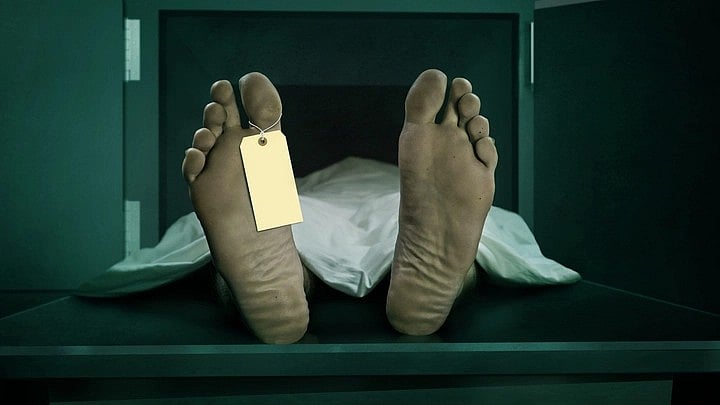
Representative image showing a body in a morgue.
Credit: iStock Photo
Over 50% of primary health centres (PHC) in Karnataka lack mortuary rooms, forcing doctors to perform postmortem examinations in open fields. This is not just a matter of infrastructural inadequacy – it is a glaring violation of medical protocol and dignity of the deceased. Take the case of a medical officer from Bagalkot district who admitted to conducting six post-mortems in open fields over the past year. Such incidents are disturbingly common across rural Karnataka. As many as 650 PHCs constructed before 1990 have mortuaries, but are not fully functional. The ones built later entirely lack this facility. As a result, bodies are either examined in the open or shifted to district hospitals. Transporting bodies to distant hospitals presents its own challenges including logistical problems, lack of cold storage leading to deterioration of the body, and prolonged trauma for grieving families.
Delays can also lead to loss of crucial evidence, compromising investigations and subsequent legal proceedings. The health department’s appeal for funds to Zilla Panchayats has not yielded results, further complicating the problem. Meanwhile, Health Commissioner K B Sivakumar claims ignorance of such incidents and insists that all postmortems are conducted in government facilities. This disconnect between ground realities and administrative claims is deeply troubling. Medical officers are caught between bureaucratic inaction and the pressing need to uphold the sanctity of their duties. Postmortems are not just medical formalities: they are crucial tools for justice, especially in cases of unnatural deaths, and must be handled with precision, dignity and safety. Conducting post mortems in open fields undermines all three. It exposes the deceased to public scrutiny, traumatises families, and creates an unsterile environment, compromising the integrity of forensic findings. It also endangers medical personnel who operate without proper infrastructure or equipment.
This is not an issue of resource constraints but of misplaced priorities. A functional mortuary is a basic, non-negotiable necessity for every PHC. Health Minister Dinesh Gundu Rao should give this his personal attention and set up a committee to investigate the state of mortuaries focussing both on operational status and cold storage availability. The state government, health department, and the panchayats should coordinate efforts to fund and operationalise mortuary rooms across PHCs. The current practice of conducting post-mortems in the open is a reflection of systemic neglect. The government must rectify this unacceptable situation – not only to restore dignity to the dead but also to ensure that justice and public health are no longer casualties of administrative indifference.
